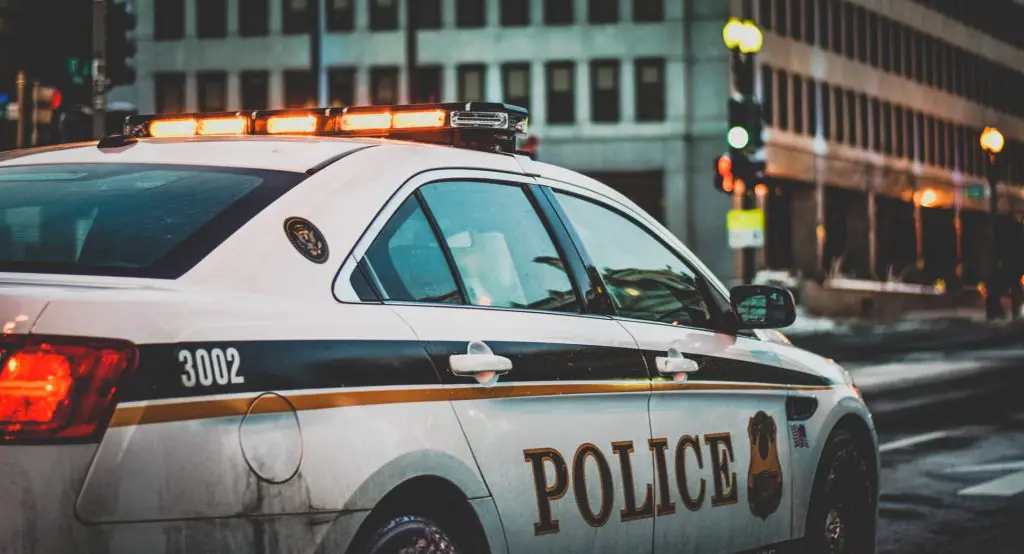In today’s fast-paced world, interactions with law enforcement can be intimidating and confusing. Knowing your rights and understanding how to navigate these encounters is crucial for preserving your dignity and privacy. In this comprehensive guide, we will explore the rights police don’t want you to know, legal requirements for police interactions, and how to protect your privacy. Empower yourself with the knowledge to confidently and safely handle police encounters in 2023.
Short Summary
- Know your rights during police encounters to protect yourself and maintain control.
- Understand the legal requirements for interactions with law enforcement, such as probable cause and search warrants.
- Utilize resources from organizations like the ACLU to confidently navigate police interactions while protecting civil liberties.
Understanding Your Rights During Police Encounters

It’s essential to be aware of your rights during encounters with law enforcement officers, as this knowledge can mean the difference between a smooth interaction and a potentially dangerous situation. Some of the most critical rights you possess during police encounters include the right to remain silent, the right to record police officers, and the right to refuse consent to searches. By understanding these rights and knowing when to assert them, you can protect yourself from potential abuses of power and maintain control over your interactions with police.
Having a clear grasp of your rights will not only empower you during police encounters, but also aid in holding law enforcement officers accountable for their actions. Remember, knowledge is power, and understanding your rights is the first step in ensuring that your civil liberties are protected.
The Right to Remain Silent
The right to remain silent is a fundamental protection afforded to citizens under the United States Constitution. This right allows you to withhold information that could potentially incriminate you or be used against you in legal proceedings. However, it’s important to note that while you have the right to remain silent, you must explicitly state your intention to exercise this right to law enforcement officers.
Being aware of this right and knowing when to assert it can be critical in protecting yourself from potential self-incrimination. It is crucial to remember that remaining silent is not an admission of guilt, but a means of preserving your legal rights and protecting your privacy.
The Right to Record Police Officers
In the digital age, recording police officers during public interactions has become an increasingly common practice. This right is protected under the First Amendment, which grants citizens the ability to document law enforcement activities in public spaces. By exercising this right, you can hold police officers accountable for their actions and potentially provide valuable evidence in the event of misconduct or abuse of power.
It’s important to note that while you have the right to record police officers in public spaces, there are limitations to this right. For example, you cannot interfere with their responsibilities or obstruct their work. Additionally, recording police officers on private property may require the owner’s permission. Ensure you are aware of these limitations and exercise your right to record responsibly.
The Right to Refuse Consent to Searches
The Fourth Amendment of the United States Constitution protects citizens from unreasonable searches and seizures. This means that you have the right to refuse consent to searches of your person, vehicle, or home without a warrant or probable cause. By exercising this right, you can protect your privacy and prevent potential abuses of power by law enforcement officers.
It’s important to remember that while you have the right to refuse consent to searches, there are situations in which police officers can conduct searches without your consent. These exceptions include instances of “hot pursuit,” where officers are chasing a suspect, or when evidence of a crime is in plain view. By understanding the limitations of your right to refuse consent to searches, you can better protect your privacy and civil liberties.
Legal Requirements for Police Interactions

In addition to understanding your rights during police encounters, it’s essential to be aware of the legal requirements that govern these interactions. These requirements vary depending on the nature of the encounter, such as traffic stops, home entries, and identification checks. By knowing these legal requirements, you can ensure that your interactions with law enforcement officers are conducted within the bounds of the law and prevent potential violations of your rights.
Being well-informed about the legal requirements for police interactions not only empowers you during encounters with law enforcement officers, but also serves as a vital tool in holding them accountable for their actions. By exercising your rights and demanding adherence to the law, you can help promote transparency, fairness, and respect for civil liberties in your community.
Probable Cause for Traffic Stops
During traffic stops, police officers are required to have probable cause to pull you over. Probable cause is a reasonable belief that you have committed a crime, such as speeding, running a stop sign, or having a broken tail light. Without probable cause, a traffic stop may be deemed unlawful, and any evidence obtained during the stop could potentially be inadmissible in court.
It’s essential to be aware of the probable cause requirement during traffic stops, as it can serve as a safeguard against arbitrary or discriminatory stops. By understanding this legal requirement, you can better protect your rights and ensure that your interactions with law enforcement officers are conducted within the bounds of the law.
Search Warrants for Home Entry
When it comes to entering your home, police officers must generally possess a search warrant to do so lawfully. A search warrant is a legal document issued by a judge or magistrate that grants law enforcement officers the authority to search a specified location for evidence of a crime. The warrant must be based on probable cause and describe the area to be searched and the items or persons sought.
There are, however, certain exceptions to the search warrant requirement for home entry. For example, if criminal activities are taking place in plain sight on your property, police officers may enter your home without a warrant. By understanding the search warrant requirement and its exceptions, you can better protect your privacy and ensure that your interactions with law enforcement officers are conducted within the bounds of the law.
Identification Requirements
During police interactions, you may be required to provide identification to law enforcement officers. This typically includes presenting your driver’s license, registration, and proof of insurance during a traffic stop. However, identification requirements may vary according to state laws, so it’s essential to be familiar with your local regulations.
By knowing your state’s identification requirements, you can ensure that you are prepared to provide the necessary documents during police encounters and avoid potential misunderstandings or conflicts with law enforcement officers. This knowledge can also help protect your privacy and prevent potential violations of your rights during police interactions.
Protecting Your Privacy

In today’s interconnected world, protecting your privacy during police encounters is more important than ever. This includes being mindful of your rights regarding phone searches and warrants, abandoned property searches, and DNA collection through trickery. By understanding these aspects of privacy protection, you can take steps to safeguard your personal information and maintain control over your interactions with law enforcement officers.
Protecting your privacy during police encounters is not only a matter of personal security, but also a crucial aspect of preserving your civil liberties. By exercising your rights and demanding adherence to the law, you can help promote transparency, fairness, and respect for civil liberties in your community and beyond.
See Also: Can You Call The Police Station to Ask a Question?
Phone Searches and Warrants
Your cell phone contains a wealth of personal information, making it essential to understand the legal requirements governing phone searches by law enforcement officers. Police usually need a warrant before they can search your phone. Without a warrant, they are not permitted to carry out such a search. This rule is based on the Fourth Amendment’s protection against unreasonable searches and seizures.
However, there are exceptions to the warrant requirement for phone searches. For example, if police have probable cause to believe that your phone contains evidence of a crime, they may be allowed to search it without obtaining a warrant.
By understanding the legal requirements for phone searches and warrants, you can better protect your privacy and ensure that your interactions with law enforcement officers are conducted within the bounds of the law.
Abandoned Property Searches
When you abandon property, you relinquish your expectation of privacy, allowing law enforcement officers to search the property without a warrant. It’s crucial to be aware of this aspect of privacy protection, as it can have significant implications for your rights during police encounters.
To safeguard your privacy and prevent potential abuses of power by law enforcement officers, it’s essential to be mindful of the circumstances under which you leave property unattended. By taking steps to maintain control over your personal belongings and understanding the legal requirements for abandoned property searches, you can better protect your privacy and civil liberties.
DNA Collection Through Trickery
Law enforcement officers may resort to various deceptive tactics to obtain your DNA without your knowledge or consent. These methods, which can include collecting discarded DNA, stalking, and trickery, can have serious consequences for your privacy and civil liberties.
To protect yourself from DNA collection through trickery, it’s essential to be aware of the potential risks and take precautions to safeguard your personal information. By understanding the methods employed by law enforcement officers and remaining vigilant, you can help preserve your privacy and ensure that your interactions with police are conducted within the bounds of the law.
Handling Arrests and Detentions

Arrests and detentions are among the most stressful and challenging aspects of police encounters. Knowing how to handle these situations can help protect your rights, ensure your safety, and prevent potential abuses of power by law enforcement officers. This includes understanding the legal requirements for handcuffing without reading rights, warrantless house searches, and car searches and warrants.
By being well-informed about the legal requirements for arrests and detentions, you can better navigate these challenging situations and maintain control over your interactions with law enforcement officers. This knowledge can also serve as a vital tool in holding police accountable for their actions and promoting transparency, fairness, and respect for civil liberties in your community.
Handcuffing Without Reading Rights

It’s essential to understand the legal requirements for handcuffing without reading rights, as this can have significant implications for your legal rights and the admissibility of evidence in court. Although police officers are allowed to handcuff you without reading your rights, any statements you make while in custody may not be accepted as evidence if your rights were not read to you.
Being aware of this legal requirement can help protect your rights during arrests and detentions and ensure that your interactions with law enforcement officers are conducted within the bounds of the law. By understanding the consequences of handcuffing without reading rights, you can better navigate these challenging situations and maintain control over your encounters with police.
Warrantless House Searches
Warrantless house searches are a significant concern for many citizens, as they can result in violations of privacy and potential abuses of power by law enforcement officers. Police officers cannot search your home without a valid warrant. This is applicable in all situations, in general. However, there are exceptions to this rule, such as when criminal activities are taking place in plain sight on your property.
By understanding the legal requirements for warrantless house searches, you can better protect your privacy and ensure that your interactions with law enforcement officers are conducted within the bounds of the law. This knowledge can also help you hold police accountable for their actions and promote transparency, fairness, and respect for civil liberties in your community.
See Also: Can You Get a Ticket Without Being Pulled Over?
Car Searches and Warrants
Car searches and warrants are another critical aspect of police encounters that can have significant implications for your privacy and civil liberties. Generally, a warrant is required for police to search your car during a traffic stop. However, there are exceptions to this rule, such as when police have probable cause to believe that your car contains evidence of a crime.
By understanding the legal requirements for car searches and warrants, you can better protect your privacy and ensure that your interactions with law enforcement officers are conducted within the bounds of the law. This knowledge can also help hold police accountable for their actions and promote transparency, fairness, and respect for civil liberties in your community.
Navigating Police Interactions

Navigating police interactions can be daunting, especially when you’re unsure of your rights and the legal requirements governing these encounters. Fortunately, organizations like the American Civil Liberties Union (ACLU) offer resources to help individuals understand their rights and how to interact with law enforcement officers. By utilizing these resources, you can empower yourself with the knowledge needed to confidently and safely handle police encounters.
Remember, knowledge is power, and understanding your rights is the first step in ensuring that your civil liberties are protected during police interactions. By staying informed and demanding adherence to the law, you can help promote transparency, fairness, and respect for civil liberties in your community and beyond.
Summary
In conclusion, understanding your rights and the legal requirements governing police encounters is crucial for preserving your dignity, privacy, and civil liberties. By being well-informed about these topics and utilizing resources like those offered by the ACLU, you can confidently navigate police interactions and hold law enforcement officers accountable for their actions. Remember, knowledge is power, and understanding your rights is the first step in ensuring that your civil liberties are protected during police encounters in 2023.
Frequently Asked Questions
What are my rights?
As a citizen, you are entitled to the full range of fundamental rights guaranteed by the Constitution. This includes the right to freedom of expression, freedom of religion, the right to peaceful assembly, and the right to petition the government for redress of grievances. You also have the right to bear arms and the right to be secure in your own home against invasion by military forces.
Can the police pull me over for any reason?
No, the police must have a reason to pull you over for a traffic stop. This is known as reasonable suspicion. If the police lack reasonable suspicion that you have committed a traffic violation or a crime, they cannot stop your vehicle or detain you. If they violate your rights in this way, it could result in the exclusion of evidence against you.
Do police have to tell you why you are being detained?
Police officers are not obligated to tell you the reason for your arrest. While they may explain why you were detained, they are not required to do so by law. However, you have the right to know what crime they suspect you of committing.
Do police have to tell you why they pull you over?
Police are not obligated to explain why they stopped you when pulling you over, however they must have reasonable suspicion that a crime or infraction has occurred. It is likely that an officer will provide the reason for the stop as part of their protocol, but this is not required by law.



